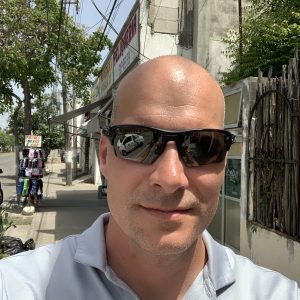The Turning Winds model of care is centered around therapeutic support in a setting that resembles the family environment clients will return to. Healthy behaviors are practiced and reinforced in a safe environment. Our clinical services combine the best elements of care from wilderness therapy, therapeutic boarding schools, and inpatient treatment to create a one-of-a-kind residential treatment center.
The clinical team has the experience and expertise to create a customized experience to promote healing, build confidence, create understanding, and provide your child with the tools necessary to succeed after their discharge from Turning Winds.
To achieve this success, Turning Winds therapists utilize several well-established modalities.
“We integrate various therapeutic approaches to create a comprehensive treatment plan for each teen,” explains clinical director Jared Sartell. “Our use of cognitive behavioral therapy (CBT) focuses on identifying and changing negative thought patterns, while dialectical behavior therapy (DBT) helps in managing emotions and improving relationships. Additionally, motivational interviewing (MI) plays a crucial role in engaging teens in the process of change, enhancing their motivation to alter harmful behaviors and adopt healthier lifestyles.”
EVIDENCE-BASED THERAPY METHODS
CBT is an evidence-based therapy method intended to prevent the escalation of “cognitive distortions.” Cognitive therapy is based on the idea that much of how we feel is determined by what we think. Therapists work with the patient to challenge negative thinking patterns by pointing out alternative ways of viewing a situation.
In his 2017 book The Craving Mind, Judson Brewer explains that “patients who suffer from depression or addiction are taught to ‘catch it, check it, change it’ when they notice negative beliefs about themselves that can lead to drug use.” CBT aims to replace the cascade of distorted, negative thoughts and emotions with accurate, more optimistic patterns.
DBT emerged from efforts to treat personality disorders and interpersonal conflicts but then evolved into a process in which therapists and clients work with acceptance and change-oriented strategies, and ultimately balance and synthesize them—comparable to the philosophical dialectical process of thesis and antithesis followed by synthesis.
DBT combines elements of CBT with mindfulness practices to promote emotional regulation, distress tolerance, interpersonal effectiveness, and self-acceptance. It empowers teens to develop a nonjudgmental and accepting attitude toward themselves while working toward positive change and personal growth. DBT has proven to be highly effective in addressing issues such as self-harm, suicidal ideation, substance misuse, and struggles in relationships. It is effective in helping teens build resilience and improve their overall well-being.
Motivational interviewing is a directive, client-centered counseling style for eliciting behavior change by helping clients explore and resolve ambivalence. Compared with non-directive counseling, it is more focused and goal-directed and departs from traditional client-centered therapy through this use of direction, in which therapists attempt to influence clients to consider making changes, rather than engaging in non-directive therapeutic exploration. MI is most centrally defined not by technique but by its spirit as a facilitative style for interpersonal relationships.
A VARIETY OF APPROACHES TO ADDRESS DIFFERENT NEEDS
“Our multi-therapeutic approach is designed to address the diverse needs of our teens. By combining different therapeutic methods, we can offer more personalized and effective treatment,” says CEO Owen Baisden. “Each method brings a unique set of tools and perspectives, which, when used together, provide a well-rounded approach to mental health care. This integration is crucial for dealing with complex behavioral and emotional issues.”
22 YEARS OF TRANSFORMING TEENS LIVES
For the past two decades, Turning Winds has built a team of some of the world’s finest academic and therapeutic professionals, who all share the same goal: to help teens re-engage meaningfully with their lives, families, and futures.
Our mission is to rescue teens from mental health, behavioral, or emotional crises, renew their belief in their potential, reunite them with their families, and put them on a sustainable path to success.
Contact us online for more information, or call us at 800-845-1380. If we miss your call, rest assured we will reconnect with you promptly to start planning your transformative experience.









